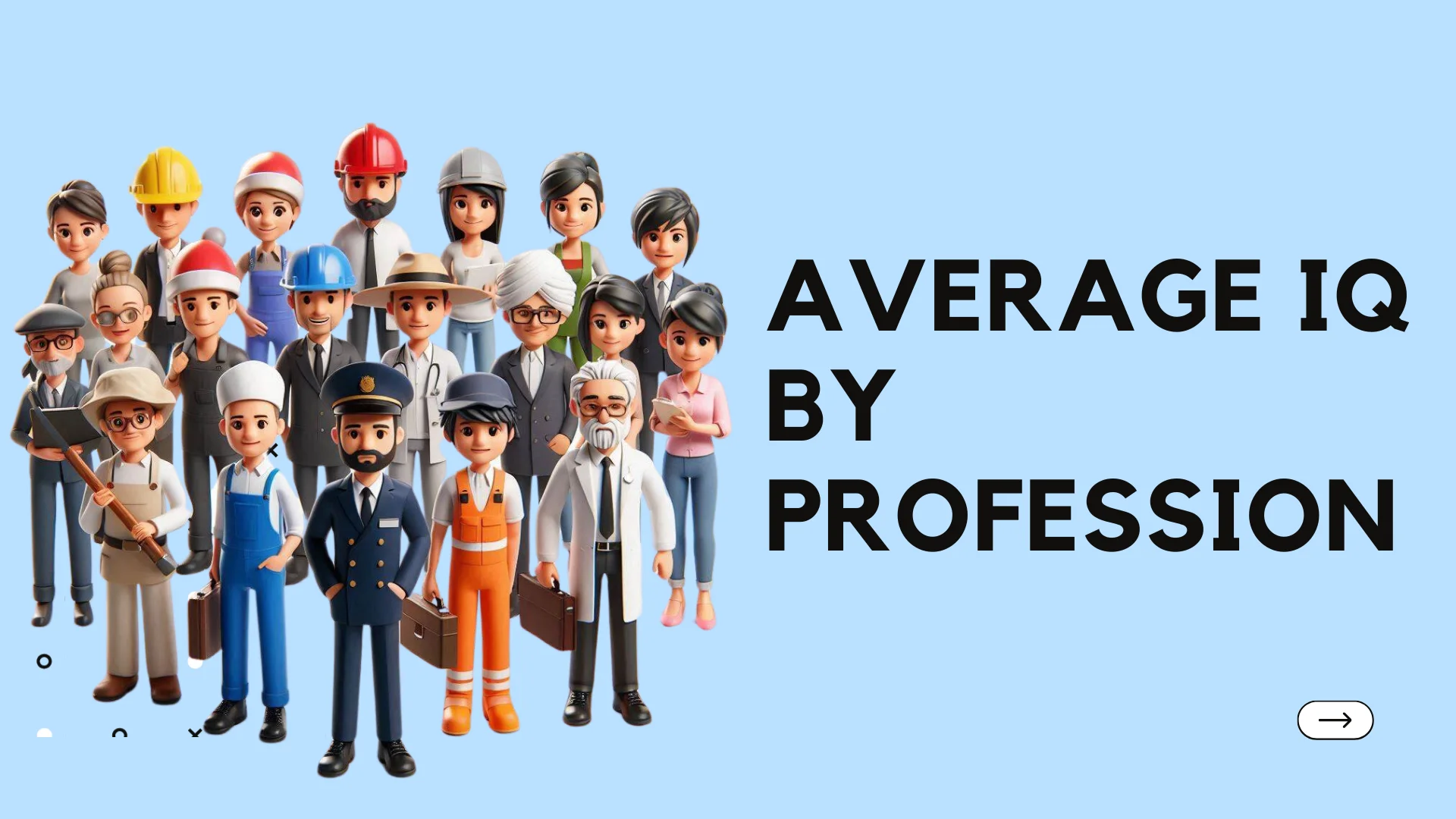Average IQ by Profession (Researched)
Statistics help us understand many things about our society, including the diverse intellectual levels found across different professions.
Looking into average IQ statistics across professions can offer interesting insights into how intelligence is spread across different fields.
This led to a thought-provoking question: Are some jobs more mentally challenging than others? Before proceeding toward the main topic, it is essential to understand that IQ is only one way to gauge intelligence and might not capture all aspects of human capability and intelligence.
Furthermore, IQ scores can be affected by different factors like education, culture, and socioeconomic status.
With that said, there isn’t a universally agreed-upon hierarchy of average IQs among professions. Each profession requires unique skills and abilities. Certain occupations that frequently demand analytical and advanced problem-solving abilities, like research scientists, engineers, and professors, are sometimes linked with higher average IQ scores in certain research.
It is important to remember that intelligence is varied and complex, and individuals can excel in diverse fields irrespective of their IQ scores. Now, let me explore average IQ across different professions.
IQ Across Different Professions
| Professions | Average IQ |
|---|---|
| Technical Profession | IQ 112 |
| Managerial Position | IQ 104 |
| Clerical and Sales Workers | IQ 101 |
| Skilled Trade | IQ 101 |
| Semi Skilled Trade (manual labor) | IQ 92 |
| Unskilled Occupation | IQ 87 |
| Surgeons and Physicians | IQ 125 – 130 |
| College Professor | IQ 115 – 130 |
| Electrical Engineer | IQ 110 – 130 |
| Lawyers | IQ 115- 130 |
| School Teacher | IQ 110 – 120 |
| Chemist | IQ 120 – 130 |
| Doctors | IQ 120 -130 |
| Social Worker | IQ 90 – 110 |
| Secretaries | IQ 90 – 110 |
| Firefighter | IQ 90 – 110 |
| Agriculture and Horticulture | IQ 90 – 110 |
| Police Officer | IQ 90 – 110 |
| Professional Athletes | IQ 90- 110 |
| Artistic Profession | IQ 90- 110 |
| Catering Trade | IQ 90 – 110 |
The Simon-Binet IQ Scale categorizes intelligence scores into several ranges. Let me explain the meaning of each level:
Under 70 (Feeble – mindedness)
Scores below 70 indicate significant cognitive impairments, which can impact daily functioning and may require substantial assistance and support.
70-79 (Borderline Deficiency in Intelligence)
Individuals who fall within this range may struggle with intellectual tasks and may require additional support in certain areas.
80-89 (Dullness)
IQ score in this range suggests below-average intellectual abilities, with individuals potentially experiencing difficulties with more complex cognitive tasks.
90 – 109 (Average or Normal Intelligence)
This range encompasses the majority of the majority of population and indicates typical cognitive functioning for the general population.
110 – 119 (Superior Intelligence)
Those who fall under this category possess above-average intellectual abilities and can handle moderately challenging cognitive tasks effectively.
120 -140 (Very Superior Intelligence)
People who score within this range exhibit highly advanced cognitive skills and excel in tasks requiring complex reasoning and problem-solving.
Over 140 (Genius)
Intellectually gifted individuals who demonstrate outstanding cognitive abilities fall within this range. Each IQ score mentioned above displays the intellectual abilities of individuals, providing a glimpse into their cognitive strength and potential.
To sum up, examining average IQs across professions offers valuable insights into the cognitive skills linked with different occupations. While IQ is not the only main factor in determining success or competence in any job, looking at these statistics helps us understand what kind of thinking and skills different jobs need.
It is crucial to note that understanding intelligence is pretty complex, and IQ scores only show a part of how smart someone is.
Additional factors like education, experience, and personality traits are also crucial in determining success in a profession. The statistics in this article show interesting patterns, but they shouldn’t be used to judge how smart someone is or how good their job is.
It is vital to recognize that humans are multifaceted, with a wide array of abilities and talents that go beyond just their IQ level.
Take a Real IQ Test Online!
Take a comprehensive 100-question test and see whether you are more intelligent than Einstein or not.

